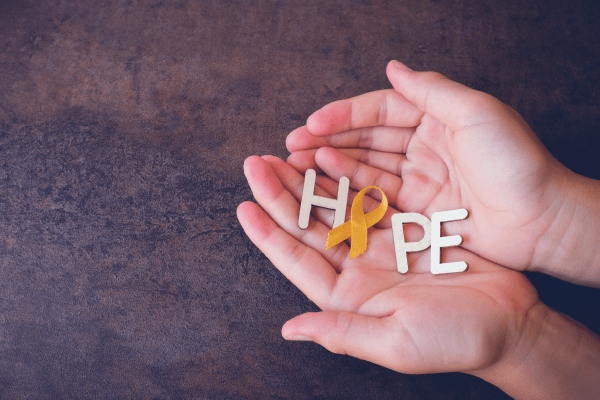Why Can Someone Commit Suicide?

Bullying even occurs among professionals, such as doctors. A doctor committed suicide some time ago as a result of threats, intimidation, and blackmail from his seniors. Psychological pressure is strongly suspected to be the trigger.
It is difficult to imagine what causes someone to commit suicide. There may not be obvious warning signs of suicidal thoughts.
Suicide is not the result of a single factor but an accumulation of various factors that accumulate over time. In cases of bullying, especially in stressful environments such as the medical, it is critical to notice symptoms of risk, such as changes in behavior, withdrawal, or signs of depression, so that intervention can be carried out early.
Here are some factors that make someone think about suicide.

Mental health disorders
90% of suicide cases are committed by someone who has a mental health disorder. The most common mental health disorders that influence a person's decision to commit suicide are severe depression, anxiety, and even PTSD (Post-Traumatic Stress Disorder).
In this disturbed mental condition, feelings of hopelessness, inability to feel happiness (anhedonia), and impulsivity cause suicidal thoughts to become more dominant, especially when the victim feels there is no help or support from the surrounding environment.
Chronic stress and burnout
Prolonged stress can lead to mental and emotional exhaustion (burnout). In victims who work in stressful environments, such as doctors, this stress can be much more severe.
Unresolved exhaustion often makes a person lose the ability to cope with daily problems. This pressure that exceeds the limit will give rise to suicidal thoughts and begin to see suicide as the only way to end suffering.
Loss or fear of loss
A person may decide to commit suicide when faced with loss or fear of loss. For example, loss of a job, loss of social status, loss of a loved one.
Unresolved feelings of loss and grief can worsen the risk of developing depression. In addition, excessive fear of loss can also develop into anxiety. Anxiety causes an inability to control excessive worry and intense fear, which can worsen feelings of hopelessness.
Individuals with both conditions often experience problems with clear thinking and making rational decisions, which further exacerbates the risk of suicidal behavior.
Hopelessness
Bullying often involves constant insults, harassment, or belittling of a person's abilities. When someone is a victim, especially in the workplace, they can lose their self-confidence and feel worthless. In extreme cases, victims may begin to believe that they are inadequate or even feel like a burden to others.
Social isolation
Victims of bullying often feel isolated from their colleagues or social circle. This feeling can happen because of shame or fear of sharing their experiences. This deep sense of loneliness worsens mental conditions and adds to feelings of being unwanted or unimportant, which can increase the risk of depression.
Lack of support and intervention
When victims of bullying do not receive adequate support from friends, family, or institutions, feelings of isolation and hopelessness worsen. Institutions that are unresponsive to reports of bullying can also make victims feel helpless and unprotected, which worsens mental distress.
It is crucial to provide effective intervention and comprehensive support to prevent bullying victims from taking tragic steps, such as suicide.
What are the signs that someone is considering suicide?

Suicide doesn’t always have prominent warning signs. Sometimes, it can happen suddenly without clearly indicating something is seriously wrong.
- Common signs that may indicate someone is at risk of suicide include:
- Thoughts about suicide.
- Talking about suicide with others.
- Hiding suicidal thoughts from others.
- Making preparations, such as making a will, writing a note, giving away valuables, saying goodbye, tidying up the house, or looking for and purchasing weapons or dangerous substances.
- Risky or reckless behavior without regard for consequences, including self-harm.
- Withdrawing from loved ones and social circles.
- Feeling burdened or trapped in a situation that seems like there is no way out.
- Having drastic mood swings, such as anxiety, restlessness, anger, or depression.
- Feeling suddenly calm after a period of mood swings.
- Signs of worsening depression, such as changes in sleep patterns (sleeping too much or too little) or loss of interest in previously enjoyable activities.
If you notice these signs, do the following:
- Do not leave them alone. If possible, ask a friend or family member for help.
- Remove sharp objects or anything that could be used to hurt themselves.
- Ask them how they feel without judging, and listen carefully to what they say. Allowing them to open up and share their problems can help ease the pain and reduce their desire to commit suicide.
- If they are already receiving psychiatric treatment, contact a doctor or therapist for help.
- Try to keep them calm.
**

Bullying can hurt everyone involved, including the victim, those around them, and the abuser. These activities can have consequences for both physical and mental health. As a result, both the victim and the bully may have an increased risk of suicide.
The story of a doctor committing suicide may be difficult to understand. However, this is what happened. Incidents like this can happen to anyone. Including the people we love.
Therefore, let us increase our sensitivity: provide a shoulder and an ear to share the burden and listen.
Don't stigmatize or judge the victim. They also have a family who, of course, deeply grieve because they have lost their loved one.
Don't allow hopelessness to take over. If you or someone close to you shows signs of suicide risk, seek help immediately. GWS Medika Clinic, a health clinic in Jakarta, provides mental health services ready to help you through this difficult time.
Contact us now for professional support and care. You are not alone—there is hope.



